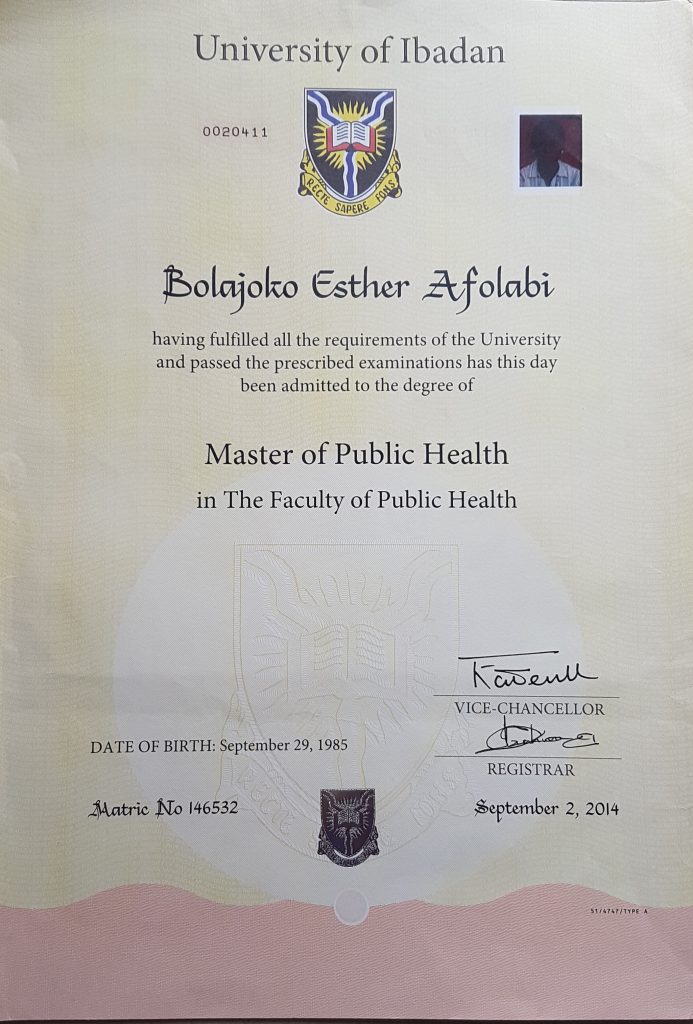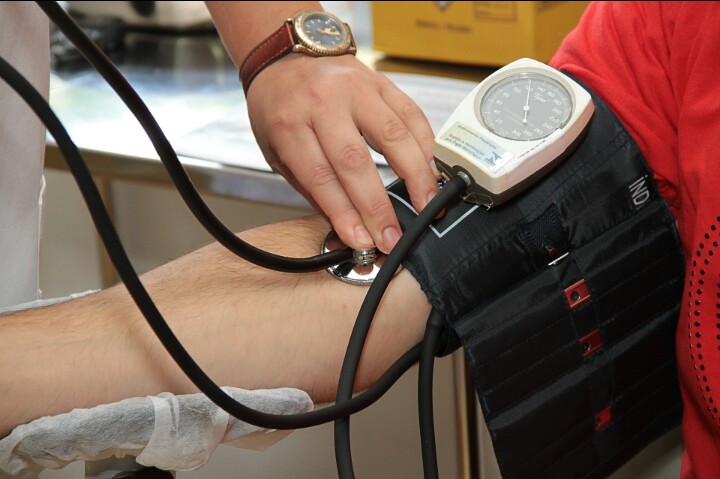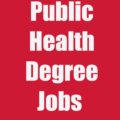After earning your Master of Public Health (MPH), or Ph.D. in Public health, there are a vast variety of career and job opportunities available. For example, a Masters in Public Health can set you up for careers in fields that you never thought possible with a masters degree. Depending on your interests and your work experience, you may find more positions more suitable than others – and there is seemingly something for everyone. Our team of educational researchers have spent decades providing resources for education. Here are 120 areas you can consider:
Public Health Consultant
Public health consultants assist organizations with all aspects of their operations in order to protect public health. Consultants of this nature work with consulting firms or directly with industrial corporations, hospitals, government agencies, and more.
Environmental Health
Environmental health professionals study how environmental risk factors can cause diseases, like asthma, cancer, and lead poisoning. Students who graduate with an MPH, and are specialized in Environmental Health have skills in data analysis, epidemiology, risk assessment, occupational hazards, and policy analysis. Career opportunities in Environmental Health include Environmental Health Professionals and Wastewater Treatment Operators.
Health Care Policy Analyst
Health care policy analysts research complicated health policy problems and formulate subsequent recommendations for reform. Recently, analysts in the health care policy field have focused on the implications of, and improvements of health.
Public Health Lobbyist
Lobbyists represent the interests of groups of people or organizations especially NGOs and work to advance these interests through legislation. A public health lobbyist may represent a wide range of organizations and companies at the local, state, or federal level. Lobbyists often spend the majority of their time conducting research on the issues they present to legislators. See Full List of International and Local NGOs In Nigeria
Community Health
Whereas other areas of public health focus heavily on analyzing and gathering data, the Community Health field hones in on a more social and cultural approach. Community Health is the practice of improving the health of individuals, families, communities, and populations, and it requires understanding the cultural and behavioral factors that influence health. Careers and opportunities within the Community Health realm often involve teaching and/or promoting behaviors to improve health and wellness. Often times this includes developing innovative, educational programs for communities surrounding the prevention and treatment of disease. The most common career opportunity in Community Health is a Health Educator.
Political Scientist
Political scientists study the origin, development, and operation of political systems. Those with a public health focus spend time researching political processes related to health topics such as government health care programs, environmental health issues, and more.
Health Educators
Health Educators teach people behaviors that promote health and wellness. They may work in healthcare facilities, colleges, non-profits, public health departments, or private businesses. Their role includes designing and implementing programs that improve the health outcomes of individuals and communities. They also may work one-on-one with members of the community to discuss their personal health and wellness goals.
Public Health Planner
Public health planners address the needs of specific communities and advocate for relevant public health policies in the relevant government entities. Public health planners create public health initiatives through gathering and analyzing data.
Biostatistician
Biostatisticians use statistics to aid in research initiatives in all areas of public health. Many biostatisticians are employed by the Food and Drug Administration to ensure that prescription drug trials are accurate and that the drugs are safe. Biostatisticians also work in non-governmental organizations such as nonprofits, hospitals, and consulting firms. The American Statistical Association reports that biostatisticians with a master’s degree or higher can earn up to $150,000 annually.
Infection and Injury Prevention Specialist
Infection and injury prevention specialists determine the causes of injury and sources of infection in specific communities. They use their research to communicate prevention strategies with the public, hospitals, corporations, and more.
Community Outreach Program Manager
Managers of community outreach programs coordinate and supervise health-related programs and community organizations. They manage staff that provides health-related services to the general public.
Public Health Journalist
Public health journalists are experts in the public health field. They create content for news publications, advertisements, television, and more.
Medical Writer
Medical writers, often called technical writers, work to explain medical science to the public. Companies that create new medical technologies for professionals often employ them. Medical writers also produce regulatory instructions, presentations, journal abstracts, and more.
Project Manager
Project managers oversee all aspects of a project. In a global health environment, a project manager works to ensure that a health initiative is reaching and exceeding its goals. Project managers are integral to the success of global health projects.
Global Infectious Disease Specialist
Global infectious disease specialists focus on infectious diseases on an international scale. They often focus on infectious diseases such as malaria, HIV and AIDS, tuberculosis, or measles that have a large impact in developing countries. These specialists study how diseases are transmitted, where they come from, and how to slow infection rates.
Health Scientist
Health scientists also referred to as medical scientists, conduct research that aims to improve overall public health. Health scientists focus on a wide variety of issues, many of which are of importance in developing underdeveloped countries.
Nutritionist
Proper nutrition, especially in developing countries, is of the utmost importance for population health. Nutritionists and dieticians with an MPH have the opportunity to help plan and implement adequate nutrition plans for underserved countries and communities.
Organization Director
Many public health organizations focus on the improvement of public health in a global environment. MPH graduates could expect to direct and manage an international public health organization. Organization directors create strategies and policies to ensure that the organization meets its public health goals.
Emergency Preparedness Director
Directors in the emergency preparedness field prepare plans and procedures for responses to natural disasters and other emergencies. They manage the response of fire and law enforcement officers, government agencies, and volunteers after disasters occur
Professor of Public Health
A professor of public health instructs students at the university level. They are often given flexibility with their academic focus and have the opportunity to publish scholarly articles and books.
Director of Population Health
Directors of population health work for government agencies or non-governmental organizations at the local, state, nationwide or international level to improve the health of the general public. In this capacity, directors create population health initiatives and manage employees to ensure the initiatives’ success. SEE: Public Health Surveillance: Steps, Types, Importance
Public Health Engineer
Engineers interested in public health often focus on solutions to environmental problems that cause health problems such as waste disposal, and water and air pollution.
Research Coordinator
Research coordinators focus on the day-to-day management of public health studies. They assist in managing data, recruit research assistants and meet with head researchers. Because research is continuously being completed, research coordinators have the opportunity to work in many different areas of public health.
Other areas you can consider include
Assistant Environmental Scientist – Here, you will focus on any environmental hazards and how these will affect public health.
Biosecurity Specialist – Your role here will be to protect the general public from potential biological attacks and dangers.
Bioterrorism Researcher – You will focus on how likely bioterrorist attacks are, where they are most like to come from and what the threat will be.
Clinical Infectious Disease Specialist – You will work with patients with infectious diseases, stopping it from spreading and identifying the source.
Childbirth Health Educator – Working with expectant mothers nurses and traditional birth attendants (TBA) on the best ways to give birth.
Child Health Specialist – Working specifically with illnesses affecting children.
Chronic Disease Management Coordinator – Working as the head of the health care team looking after someone with a chronic illness.
Community Activist – Identifying the needs of the community in terms of health and addressing these by lobbying for new programs and services.
Correctional Medicine Physician – Working directly with prisoners and other people within the correctional system.
Epidemiologist – Investigating patterns and causes of diseases in the general population.
Food Service Sanitarian – Performing inspections on the food services industry and ensuring their facilities meet the standards set for public health.
Hazardous Waste Inspector – Looking into potential issues with hazardous waste and ensuring it has been disposed of properly.
Health Commissioner – Commissioning new products and services to enhance the overall health care delivery system.
Health Educator – Providing education to communities on their health, coordinating projects on improving public health.
Health Communications Specialist – Helping others to better understand the importance of healthy living and how to achieve that.
Health Facilities Surveyors – Inspecting health care delivery facilities and ensuring they meet acceptable standards.
Health Legislative Assistant – Lobbying senators and congressmen on public health issues, asking for new legislation.
Homeless Services Educator – Promoting healthy living amongst the homeless community and ensuring they have access to care.
Infection Preventionist – Working in a variety of settings to ensure sources of infection are recognized and prevented.
Maternal Child Health Specialist – Focusing on the health and well-being of new mothers and babies.
Informatics Specialist – Managing the delivery of health care informatics and how these can improve overall health.
Mental Health Researcher – Looking into mental health issues and devising new methods of treatment and awareness.
Lecturer Public Health – Delivering readings and presentations to a variety of audiences on public health.
MPH Epidemiologist – Conducting research and solving issues around infectious diseases.
NGO Manager – Leading on non-government organizations with a focus on public health.
Occupational Health Specialist – Delivering and developing occupational health services within various businesses.
Nutrition Consultant – Offering services based on better nutrition and performing research on these issues.
Outcomes Researcher – Researching the effects of public health efforts and their outcomes.
Outreach Educator – Delivering advice, information, and guidance on healthy living to the general public.
Phlebotomist – Focusing on issues with the blood, drawing blood, analyzing it, and working in laboratory settings to perform research.
Population Health Manager – Focusing on whole populations and the issues that affect their health, as well as helping them devise strategies to improve their overall health.
Public Health Administrator – Managing and overseeing hospitals to try and identify areas within an administration where improvements can be made.
Public Health Microbiologist – Testing various diseases and other elements of microbiology and determining how the results these tests show could affect public health.
Public Health Data Analyst – Working with the data that is available on public health and analyzing its meanings, thereby enabling others to come up with projects for improvement.
Public Health Educator – Educating the general public on their health, or educating the health care workforce on how their work impacts public health in general.
Public Health Information Officer – Speaking to the press and other agencies about developments in public health, including work done by hospitals, health departments, and more.
Public Health Journalist – Independently investigating the performance of public health delivery systems and identifying whether they are under or over-performing, as well as determining where potential areas for improvement are.
Public Health Lab Scientist – Working in laboratories performing tests on samples in relation to public health. These can be environmental samples or bodily fluids.
Quality Improvement Specialist – Monitoring and researching current methods of delivery within the health care system and identifying areas for improvement in quality.
Regulatory Coordinator – Overseeing clinical trials and ensuring that new service methods are following all legal rules.
Reproductive Health Assistant – Focusing on reproductive health, addressing and researching fertility issues in the general public.
Social Marketer – Creating programs and promotions that are aimed at changing public perception of health issues, thereby increasing the chances of people choosing to lead a healthy lifestyle.
State Etymologist – Working on infectious diseases, their origins, methods of spreading, and risk factors on a state level for government organizations.
Toxicologist – Researching and working with toxic products and the risk these present to people, as well as identifying possible antidotes and cures for poisonous elements such as snake bites and bee stings.
Tropical Disease Specialist – Researching the various tropical diseases and identifying their presence in this country. Additionally, this specialist will be called on if someone presents with an unknown illness and is suspected to have traveled abroad.
Urban Planner – Helping to design new urban spaces with a focus on public health. For instance, implementing green roofs and walls and other renewable and sustainable technologies.
Vaccine Researcher – Helping to develop new vaccines, testing them during clinical trials, monitoring their long-term effects, and identifying which vaccines are necessary and when and in what quantities.
Virology Trainer – Working in the field of virology and viruses and providing education to others within the field of health care about the issues surrounding this field of science.
Vector Control Surveillance – Here, you will research the factors that can contribute to disease spreading. This includes environmental factors, human behavior, and more.
Water Resource Specialist – The focus here is on managing a community’s water supply. Water resource specialists are also often hydrologists.
Regulatory Coordinator – Oversees clinical trials, thereby ensuring medical treatment is improved, leading to better outcomes in public health.
Public Health Social Worker – These are social workers in the main, but they work with entire communities or groups of people with a specific focus on public health and their perceptions of it, as well as how public health issues affect social relationships.
Public Health Veterinarian – These are veterinarians who focus on how the general public is affected by illnesses and diseases in animals. They help to prevent infections between humans and animals.
Public Health Project Manager – These specialists focus on new projects and help to implement and develop these. They also monitor the effects of new projects and steer new directions.
Public Health Specialist – This is a wide field of work that includes any specialist in an area of public health. They work together within an institute, joining forces to improve outcomes across the board.
Procurement Manager – These specialists manage the procurement department in health institutions and ensure best practice is instilled.
International HIV Specialist – The focus here is on monitoring the international development of HIV/AIDS and how this affects populations both here and abroad. Some clinical work directly with patients.
Kinesiologist – These specialists focus on the fields of health care that have to do with mobility and strength, helping patients regain both.
Environmental Health Technician – Working on identifying and addressing public environmental health concerns by utilizing technology.
Emergency Response Specialist – Focusing on developing emergency response programs in case of large-scale emergencies.
Disease Ecologist – These study how disease patterns affect the population in general and how this can be improved.
Community Counselor – Offering mental health services and counseling to members of the community.
Communicable Disease Analyst – Analyzing how illnesses and diseases spread in working environments and communities.
Behavioral Scientist – This is mainly a research position, looking into how people behave and how this affects their overall health.
Biostatisticians – These specialists collect and analyze statistics on biological issues.
Chronic Disease Medical Epidemiologist – Studying infectious diseases that are chronic in nature.
Consumer Safety Officer – Monitoring food, drugs, and various other items that are consumed and ensuring they are safe for the public.
SEE: Equity Vs Equality: Understanding The Difference






